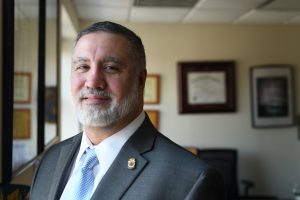Find out more about Confront Eugenics.
Marius Turda
Professor in 20th Century Central and Eastern European Biomedicine
School of History, Philosophy and Culture,
Faculty of Humanities and Social Sciences, Oxford Brookes University
Originally from Maramures, Marius has been teaching at Oxford Brookes since 2005. He is the founder director of the Cantemir Institute at the University of Oxford (2012-2013) and founder of the Working Group on the History of Eugenics and Race (HRE), established in 2006. Between 2010 and 2014 he was Deputy Director, The Centre for Health, Medicine and Society. He is a member of the Academia Europaea, Fellow of the Royal Historical Society and Fellow of the Galton Institute. In 2006, Marius established the Working Group in the History of Race and Eugenics.
Oxford Brookes University
Headington Campus
Oxford
OX3 0BP
UK

Adrian-Nicolae Furtuna
Adrian (Nicu) has a BA in sociology from the University of Bucharest and an MA in Advanced Sociological Research from the same university. Currently enrolled in a PhD programme at the Research Institute for Quality of Life of the Romanian Academy, his dissertation focuses on the social memory of Romani slavery in Romania.

Tudor Georgescu
Rooted in the medical humanities, Tudor’s research interests revolve around the eugenic construction and fascist conscription of identity in 20th century Europe. In particular, his work focuses on the evolution of indigenous eugenic movements amongst the German ethnic minorities in interwar Romania, and increasingly on their material and cultural legacies.

Benedict Ipgrave
Benedict Ipgrave is currently doing his doctorate at University College London on border relations’ impact upon nationhood in Eastern Europe, having done his MSc on International Relations. He has spent his career working with disabled students at secondary and university level, and teaching in Russia, and has overseen or played an active role in numerous educational, creative and charitable initiatives. He is the founder and programme curator for From Small Beginnings and co-director of the Anti-Eugenics Project.

Terry-Lee Marttinen
Terry-Lee is a PhD candidate in the Centre for Medical Humanities (CMH) at Oxford Brookes University and a member of the Centre for Multidisciplinary Studies on Racism (CEMFOR) at Uppsala University. As a grassroots queer disability activist, Terry-Lee embraces Sami feminist storytelling to visibilize minoritized Laestadian (cis) women and queer experiences in academic knowledge production and dialogue.

Mark Torres
Mark Torres is a New York-based attorney, author, historian and professor. As a Labor and Employment attorney, he has represented thousands of unionized employees throughout the greater New York area for more than 30 years. Mark is also an award-winning author of several books. He is the 2024 recipient of the Joseph F. Meany Award by the Association of Public Historians of the New York State for excellence in a labor history publication for his work in “Long Island Migrant Labor Camps: Dust for Blood“. (History Press, 2021) His latest release “Long Island and the Legacy of Eugenics: Station of Intolerance” (History Press, 2025) is the first of its kind to chronicle the local origins of the Eugenics Record Office at Cold Spring Harbor, New York. Mark continues to research the life and work of Charles Benedict Davenport and other aspects of the American eugenics movement. Mark has a law degree from Fordham University and a bachelor’s degree in history from New York University. He is currently an adjunct professor of Labor Studies at Hofstra University.


